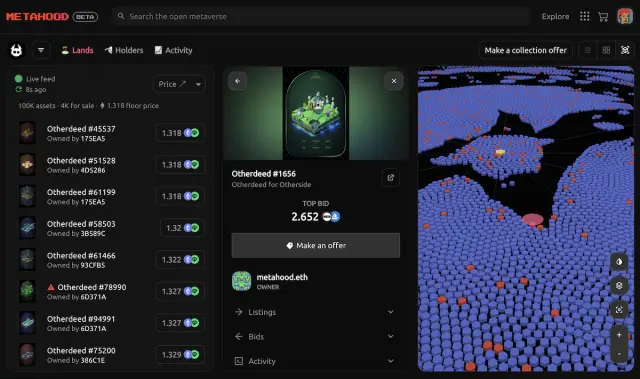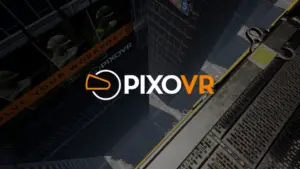The startup aiming to build a Zillow or Redfin for the metaverse, Metahood, announced $3 million in a seed funding round led by crypto VC firm 1confirmation, with participation from Flamingo DAO, Volt Capital, and Neon DAO.
The Sandbox co-founder Sébastien Borget, SuperRare co-founder John Crain, Sorare Growth Lead Brian O’Hagan, and VC and blogger/podcast host Packy McCormick contributed to the startup’s fundraising round.
The Metahood platform is intended to provide buyers of metaverse land with more context than a general-purpose NFT marketplace. It employs a map-based interface to display available land plots concerning those around them, giving users a sense of the surrounding area while highlighting sales patterns, local landowners, and more.
“We really want to provide as much information and context as possible when you buy land,” said Metahood’s founder, Gwendall Esnault.
Potential metaverse residents may not need to consider factors like walkability or school quality. Still, if you’re going to invest real money in virtual real estate or plan to create an experience there, you should know what you’re getting into. That is a gap that more significant marketplaces like OpenSea need to address, but Metahood does.
Decentraland, The Sandbox, the Otherside of the Bored Ape Yacht Club, and Somnium Space are just a few examples of early and under-development metaverse game environments that Metahood supports. While layering in more context, the platform will support native NFT land plot listings from individual users and aggregate listings from markets like OpenSea and LooksRare.
The platform intends to expand its feature set, provide a hub for Web3 users to more easily find metaverse experiences, and add more metaverse worlds as they appear. Esnault, a solo entrepreneur, now oversees a team of three people and intends to use the funds to increase headcount and improve the platform.
The euphoria surrounding the metaverse crested early last year, but if the public eventually decides to own digital property and launch enterprises on the internet, they will require a platform for selling real estate designed for more than just speculative flipping.
Follow us on Linkedin.
Read other Articles




